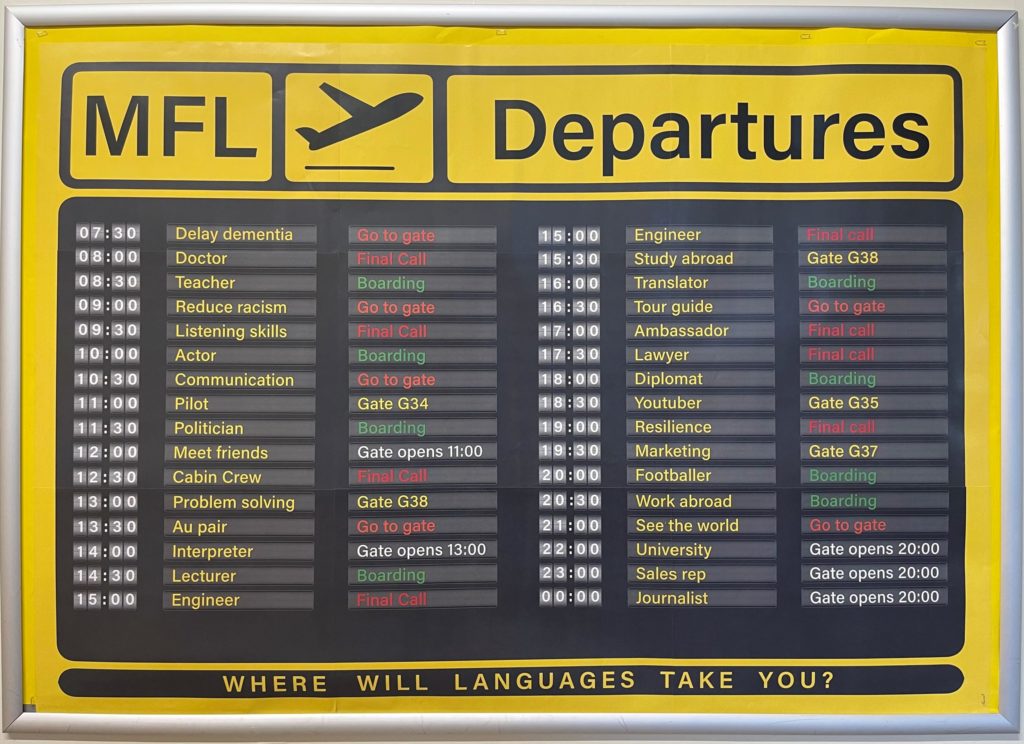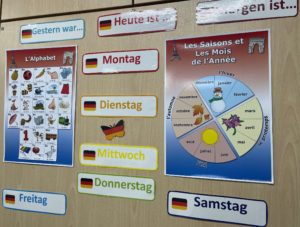Curriculum Intent
MFL at Southend High School for Girls ignites a lifelong love of learning. In MFL we fully cover the range of the National Curriculum and the GCSE and A level specifications. It instils the value of languages as an academic subject and equips students with the emotional resilience and confidence to communicate with spontaneity and increasing levels of grammatical accuracy in a variety of different contexts, using a rich vocabulary. Students begin by giving and understanding information on a personal level and develop the ability to discuss wider international issues, abstract concepts and literature. Our students take opportunities to widen their horizons intellectually, culturally and geographically, liberating themselves from the dangers of insularity. MFL students reflect on and analyse their work. They are not afraid to take responsibility for their learning but set themselves ambitious targets to help them achieve their full potential. They develop the skills required to express themselves and understand both the spoken and the written word to a range of audiences with the aim of being able to access a diversity of authentic literature, film and music. Our ambition is that our students will view themselves as global citizens eager to embrace opportunities and experiences in the world of work and beyond wherever they may be found.

What does it feel like to be a student in the German Department?

Studying German at Southend High School for Girls is a challenging and rewarding experience. Every lesson you will encounter a variety of grammar, structures and vocabulary which on application will enhance your ability to express your ideas on an abundance of topics. You will be able to speak coherently and confidently and write creatively and accurately. You will compare and contrast your own language and culture and gain a deeper understanding of German in context. You will process language from a wide variety of sources and translate both ways.
Expectations are high and you will be encouraged to read widely in order to stimulate ideas and develop your creative expression, consolidating grammatical structures and acquiring a wide ranging and deepening vocabulary, enabling you to take part in discussions about wider issues and aspects of culture.
To complement the course, there are several language competitions which are available to all students in all years, for example the Have Your Say competition. The Black Forest residential in Year 8 provides the experience to practise what you have learnt, and in Year 9 take part in the pupil exchange with our partner school in Münster. In Year 12, you will also have the opportunity to visit to Münster for a work placement.
If you should leave the subject in Year 9 you will still go forth with a sufficient degree of linguistic competency to be comfortable in a German speaking environment and possess skills of significant benefit for the future. At GCSE you will be in a position to offer a high level of competency to any future employer or institution. In Year 13 and beyond, your command of German will be exceptional and suitable for employment in a German speaking environment in this country or overseas.
Please click on the button below to download the assessment policy for German.
